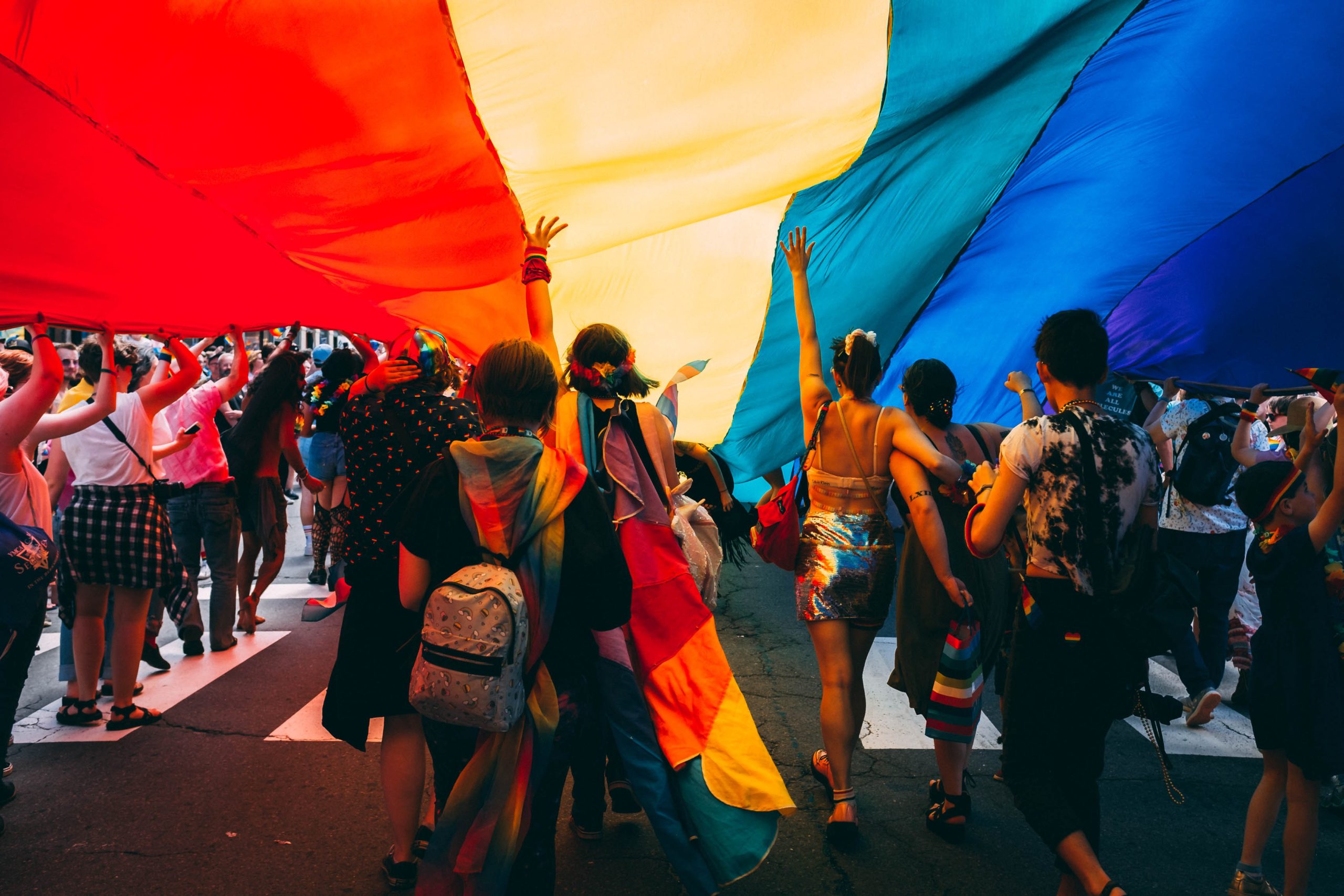Pride Toronto’s annual celebratory month will take place both in digital and publicly distanced spaces for its 40th anniversary event. The Phygital Festival 2021 will be largely composed of online and streamed events, from parades to shows and group activities, alongside smaller, distanced in-person events.
“We’re going to have some art installations that will be throughout the city of Toronto, where folks can go and view the art and great work by queer artists,” explains Sherwin Modeste, executive director of Pride Toronto.
Modeste adds that Pride Toronto will also be heading to local communities and handing out goody bags, all the while adhering to public health guidelines.
Pride Toronto also features an online shopping channel where, according to Modeste, you can “get a tour of local owned and operated queer businesses,” as a part of their business recovery aspect of the festival.
Pride takes place each June in Canada to commemorate the 1969 Stonewall riots, which “spurred the dawn of the gay liberation movement,” Nick Mulé, associate professor and coordinator of the sexuality studies program explains. “This liberation is still important today for the 2SLGBTQ+ communities.”
“It’s only 40 years ago that the bathhouse raids happened in Toronto,” Modeste adds, saying that while Pride is a celebration, it also acts as “an opportunity to remind our politicians and remind the public” of the continuous struggles for 2SLGBTQ+ people.
Mulé points out that while the Pride Guide has many offerings that reflect the diversity of the communities, there is still more room and opportunity for Pride to explore history and human rights issues. “Focusing on broader social justice concerns would more adequately capture the realities experienced by many 2SLGBTQ+ people.
“Pride needs to be about the 2SLGBTQ+ communities first and foremost in terms of political action, recognition, and celebration,” he concludes.
Nikolas Papastathopoulos, a third-year cinema and media student, says that while they may not be attending specific online Phygital events this year, celebration during the pandemic should still act as an opportunity for involvement and education for the community.
“I think that celebrating Pride at home (for a second time) can be a great experience regardless,” he says. “I love to celebrate by consuming a lot of queer content such as films, music, art, and literature. I always like to further educate myself about my own communities’ history during this month.”
“For many 2SLGBTQ+ folks, Pride has always been an opportunity to foster a sense of community and belonging,” says York Federation of Students’ (YFS) VP of Campaigns & Advocacy Adaeze Mbalaja. “Events and programming surrounding Pride and queer communities remain absolutely necessary, especially due to the COVID-19 pandemic and its often isolating effect.”
Mbalaja notes that YFS will be collaborating with Trans Bisexual Lesbian Gay Asexual at York, a student-run community service group for the upcoming Pride month. According to Mbalaja, they will be hosting virtual events that will be advertised to students via their social media accounts throughout June.
“As your student union, we would like to affirm that Pride is and always will be rooted in resilience and collective care within the queer community,” she adds.
Looking to the future of Pride Toronto, Modeste notes that they would like to keep some semblance of the online format available for “vulnerable individuals in other parts of the world” and for “folks who do not feel safe coming out,” making note that not all countries celebrate or embrace Pride month as openly as it is within Canada.
Mulé touches upon the future of the event by acknowledging the tensions that come with open accessibility to the festivities, notably when looking at police presence. In 2018, it was decided that uniformed police officers will not be able to participate in Pride events in a 163-161 vote.
“The membership of Pride Toronto has rightfully and repeatedly supported Black Lives Matter’s recommendation that the police not participate in the parade.” In Mulé’s opinion, “given how much work the police need to do when relating to the 2SLGBTQ communities, it would be best that they not be invited back in the near future.”
While it’s hard to say what the future of in-person events and parades will look like, members of the community are still urging people to become involved in whichever ways become available.
“I was lucky enough to go to my first Pride in 2019 right before the pandemic,” says Papastathopoulos, “but no matter in person or online, Pride is such an important event for queer folks to feel a sense of community in a world dominated by heteronormativity.
“My biggest advice is to attend as many events as possible — even though they are online — and most importantly, celebrate with your friends safely, however that may look.”
Modeste calls for any 2SLGBTQ+ person or ally to attend the Phygital Festival if they so choose, promising that “you’ll be able to see yourselves and feel yourselves throughout the festival we have planned.”
The official Pride Toronto Phygital Festival events began on June 1 and will run until June 27.


